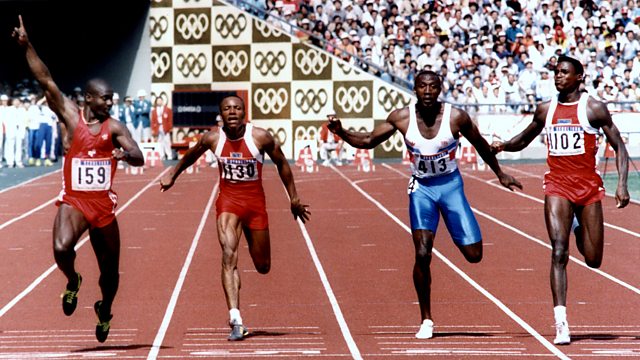When Does Healthy Competition Become Destructive?
Samira Ahmed discusses rivalry in sport, in cities and in our minds with psychologist Stephen Garcia, sport morality expert Maria Kavussanu and historian Philip Mansel.
What is the place of rivalry in human behaviour? What drives it? And where is the dividing line between competition as a positive force and one that wreaks havoc? Samira Ahmed discusses rivalry in sport, in cities and in our minds with psychologist Stephen Garcia, sport morality expert Maria Kavussanu and historian Philip Mansel.
(Photo: The finish line at the men's 100 meters final at the Seoul Olympic Games in 1988. Credit: Getty Images)
Last on
More episodes
Clip
-
![]()
Aleppo proverb: 'if you do business with a dog, call him sir'
Duration: 00:57
Stephen Garcia
Maria Kavussanu
Philip Mansel
Philip Mansel is a historian of courts and cities, and of France and the Ottoman Empire. He has particular interest in Levantine cities and has published eleven books of history and biography, including Constantinople: City of the World’s Desire 1453-1924 and Levant: Splendour and Catastrophe on the Mediterranean. His latest book is Aleppo: The Rise and Fall of Syria’s Great Merchant City.
Broadcasts
- Mon 30 May 2016 01:06GMTBBC World Service except Americas and the Caribbean, Australasia & News Internet
- Mon 30 May 2016 04:06GMTBBC World Service Americas and the Caribbean
- Tue 31 May 2016 08:06GMTBBC World Service except News Internet
- Tue 31 May 2016 23:06GMTBBC World Service except News Internet
- Wed 1 Jun 2016 01:06GMTBBC World Service Australasia
Podcast
-
![]()
The Forum
The programme that explains the present by exploring the past



